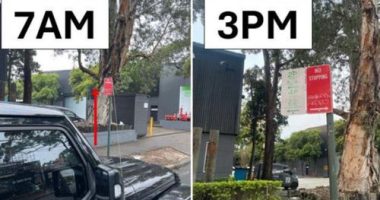Share this @internewscast.com
A government-released report earlier this week, based on a survey of nearly 4,000 people, showed that nine out of 10 people are in favor of the ban.
However, the report provides scant details on the specific technologies involved and seems inconsistent with existing knowledge about age-assurance technologies from other sources.
From facial recognition to hand movement recognition
The trial is conducted by the Age Check Certification Scheme, a UK-based company specializing in the testing and certification of identity verification systems.
However, these claims are hard to square with other evidence.

The social media ban for Australians under the age of 16 is set to come into effect in December. Source: AAP / PA / Yui Mok
High error rates
An ongoing series of studies of age estimation technology by the United States’ National Institute of Standards and Technology shows the algorithms “fail significantly when attempting to differentiate minors” of various ages.
These error rates mean a significant number of children under 16 could access social media accounts despite a ban being in place, while some over 16 could be blocked.
It’s also worth remembering that in August 2023, the Australian government acknowledged that the age assurance technology market was “immature” and could not yet meet key requirements, such as working reliably without circumvention and balancing privacy and security.
Outstanding questions
There are other outstanding questions.
Lisa M. Given is a professor of information sciences and director of the Social Change Enabling Impact Platform at RMIT University.












